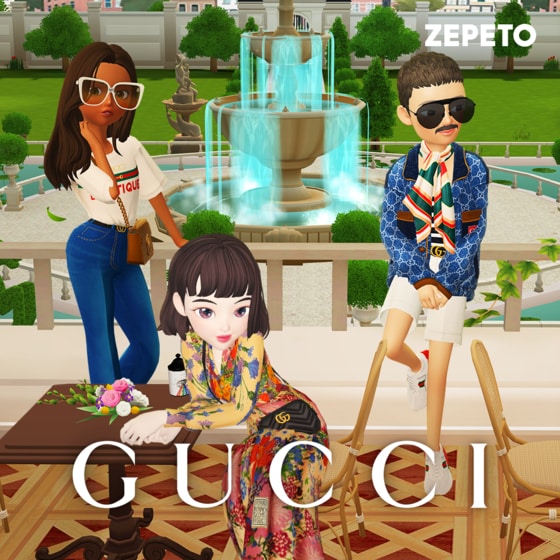The metaverse has become in the space of a few years an essential platform for many luxury players to reconnect differently with their communities. Between the creation of NFTs and land purchases on metaverses like Decentraland or TheSandbox, luxury brands are soaking up Web 3.0.
The invasion of the metaverse by luxury brands
A few years ago, the idea of spending real money on virtual clothing seemed far-fetched, but now NFTs have entered the public consciousness and have been embraced by the fashion world.
In September 2021, Karl Lagerfeld sold 777 NFTs at a unit price of €77, which sold out in just 34 seconds. Luxury fashion brands are beginning to invest time and resources to grow their brand in the metaverse. Gucci entered the metaverse earlier this year by purchasing a digital plot of land in The Sandbox, a virtual world on the Ethereum blockchain. The luxury brand hopes to develop Gucci Vault, its online concept store , to create an interactive experience as envisioned by the brand's creative director, Alessandro Michelle. The brand even posted a job posting in January for a Discord community coordinator, expanding its presence in the cryptocurrency scene.
Balenciaga, also owned by the Kering group, has launched a collaboration with Fortnite . There are several characters from the game dressed in boots, hoodies and pique sunglasses by Balenciaga.
The metaverse is a big opportunity for most businesses that want to bring NFTs, blockchain and digital assets into everyday life, where verifiable ownership of digital assets and currency will be essential.
But not all brands have embarked on the metaverse.
Louis Vuitton, Gucci's biggest competitor, has made it clear that it does not expect to see NFTs or virtual products coming to market in the near future.
Bernard Arnault, founder of LVMH, said: “ We are not interested in selling a pair of virtual trainers for €10. The metaverse is a virtual world. Right now we are in a very down to earth world. We want real products that sell for real money . »
LVMH has, however, embraced blockchain technology . The company developed a blockchain called AURA with Microsoft and ConsenSys in early 2021 to authenticate luxury goods and prevent counterfeits. The AURA blockchain is also used by Prada and Richemont, the owner of Cartier and Montblanc, among others.
The metaverse, however, poses potential problems for luxury brands, which risk turning into mass brands. Andrea Fenn, managing director of digital consultancy Adiacent China, Shanghai: “ It's a tricky business that can be detrimental in the long run for brands that misuse it. If this happens, luxury brands are doomed, as they focus on perceived value instead of actual value. »
It is clear that the metaverse is still an emerging and growing field. While no one can predict exactly what the metaverse will look like (or even when its final form will arrive), the underlying truth is that to facilitate and achieve a fully operational metaverse, blockchain and digital assets will need to play a prominent role. in future Metaverse implementations.
Receive a digest of news in the world of cryptocurrencies by subscribing to our new daily and weekly newsletter service so you don't miss any of the essential Cointribune!

